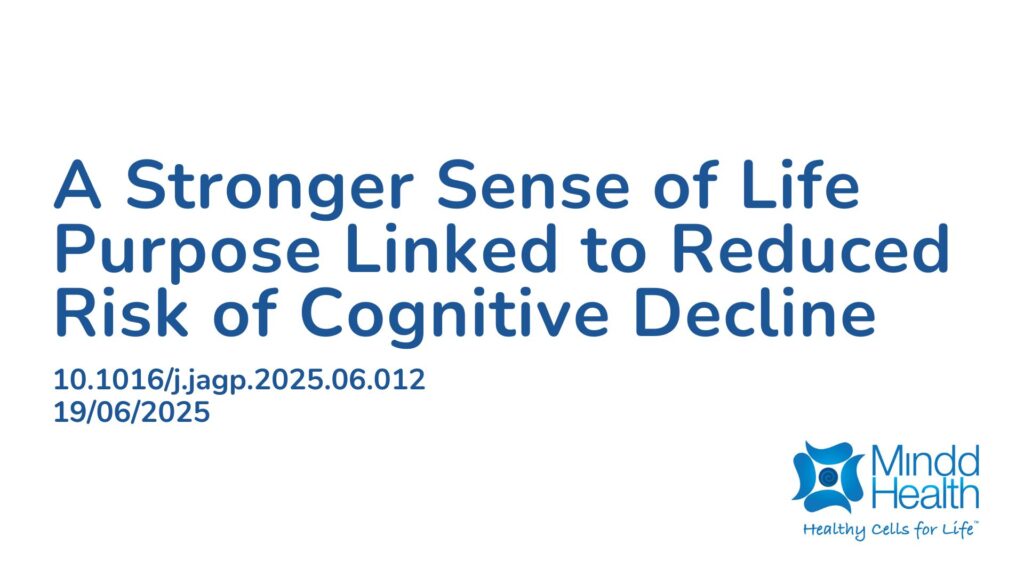Summary:
A growing body of research has identified a higher sense of Purpose in Life (PiL) as a key factor supporting overall health and longevity. Individuals with stronger PiL not only tend to live longer but also demonstrate lower risks of cognitive decline, Alzheimer’s disease, and cardiovascular disease. Evidence from large cohort studies suggests that PiL may be a protective factor, enhancing brain and heart health across the lifespan. The protective effects of PiL appear to operate through multiple mechanisms. Biological pathways may be directly influenced, with higher PiL associated with reduced inflammation, improved autonomic nervous system regulation, and favorable hormonal profiles. In addition, a strong sense of purpose can promote healthier lifestyle behaviors, including regular exercise, balanced nutrition, and avoidance of harmful habits such as smoking, which indirectly lower cardiovascular and cognitive risk. Beyond these physiological and behavioral effects, PiL strengthens psychological and social resources, such as optimism, social connectedness, and adaptive coping strategies, which help buffer the negative impact of chronic stress and its cardiotoxic effects. These findings highlight the potential of PiL not only as a target for interventions aimed at enhancing emotional and mental well-being but also as a modifiable factor with tangible benefits for both brain and cardiovascular health.
Abstract:
Over the past twenty years, growing research has suggested that having a higher sense of Purpose in Life (PiL) may have broad health benefits, including lower risk of heart problems and cognitive decline and Alzheimer’s disease, and greater longevity, which can serve as a resilience factor for brain health, as the “Midlife in the United States”(MIDUS) study and others have shown.1 Having a higher sense of purpose might influence CVD risk through 3 pathways: 1) enhancement of other psychological and social resources that buffer against the cardiotoxic effects of overwhelming stress; 2) indirect effects through health behaviors; and 3) direct effects on biological pathways. A sense of PiL is emerging as an independent risk factor for incident CVD and cardiac mortality.2,3
Article Publication Date: 19/06/2025
DOI: 10.1016/j.jagp.2025.06.012



